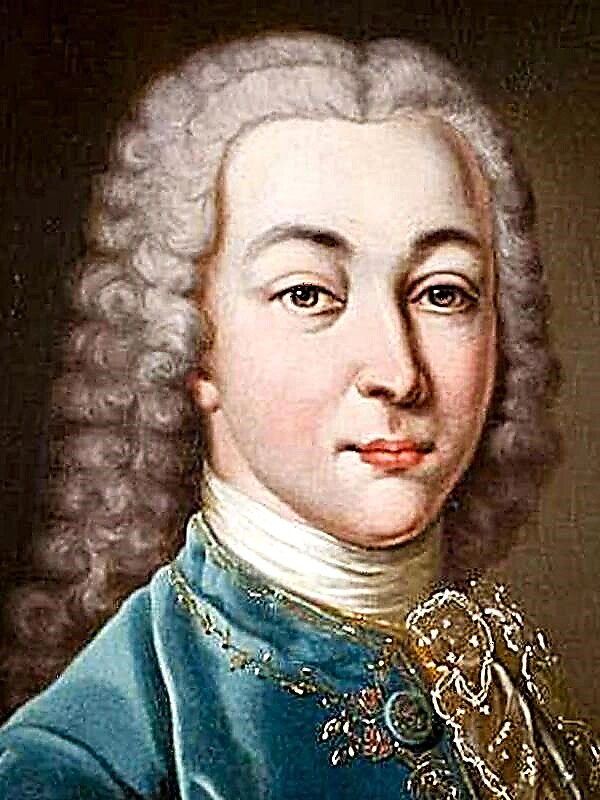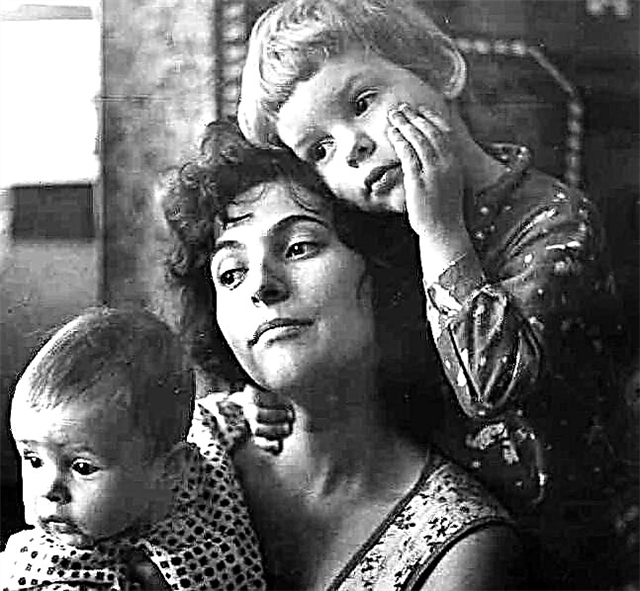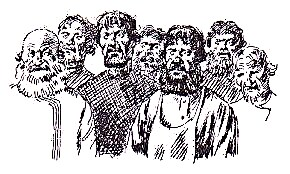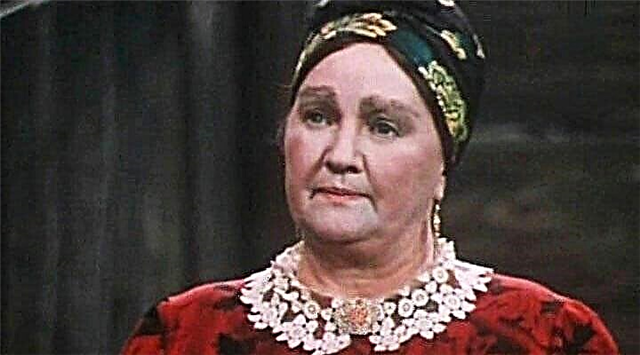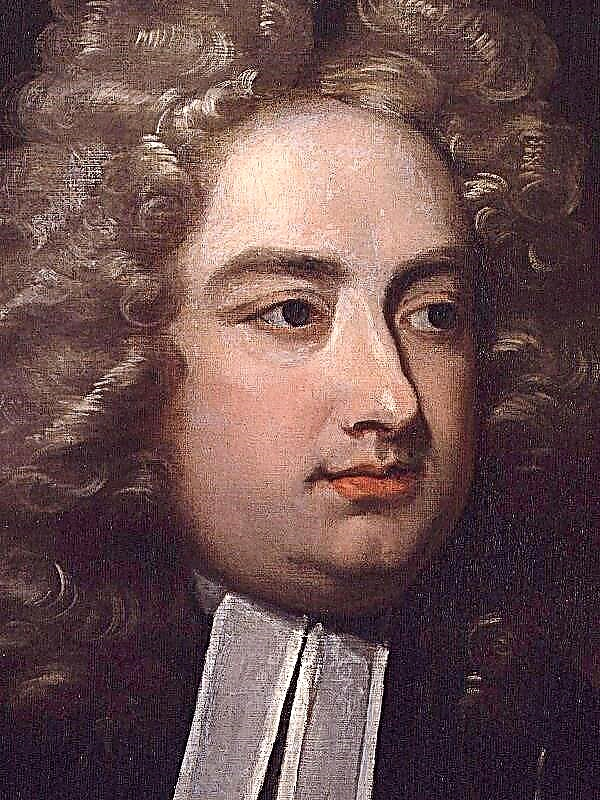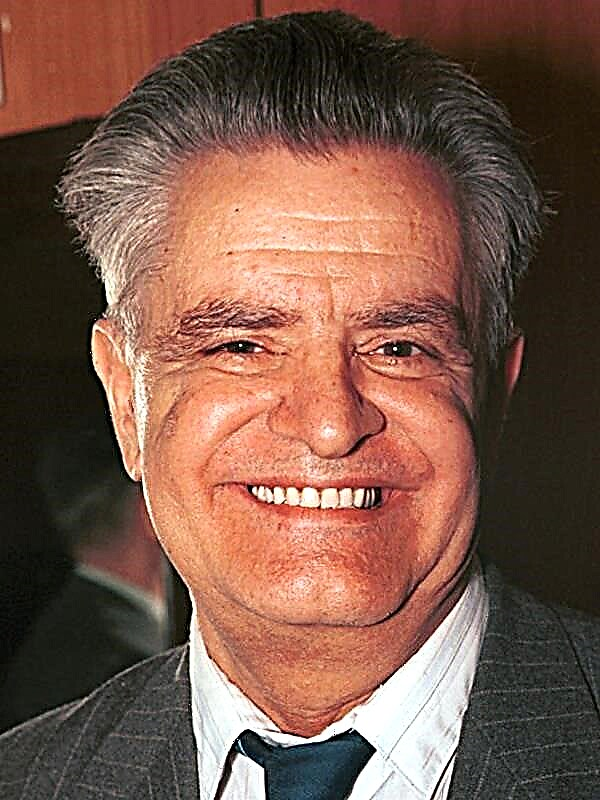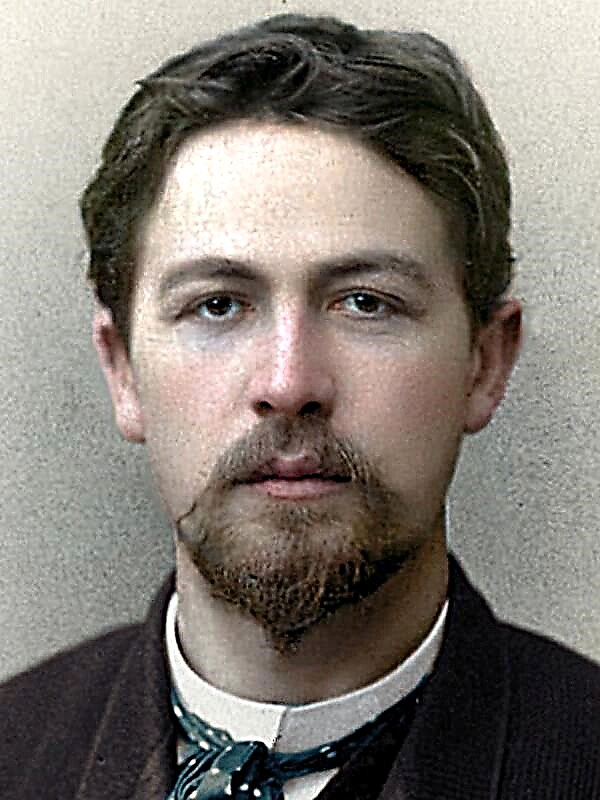Eugenia Grande was considered the most enviable bride in Saumur. Her father, a simple bochar, became rich during the Revolution, buying up confiscated church estates for nothing - the best vineyards and several farms in the Saumur district. He was elected mayor at the Consulate, and during the time of the Empire he was only called Mr. Grande - however, he was familiarly called "dad" by the eyes. No one knew exactly what capital the former Bochar had, but savvy people said that dad Grande had six to seven million francs loyal. Only two people could confirm this, but the notary Kruscho and the banker de Grassen knew how to keep their mouths shut. However, both so frankly fawned on Grande that the city of Saumur was filled with deep respect for the old man. The notary, with the support of numerous relatives, molested Evgenia’s hands for his nephew, the chairman of the court of first instance. In turn, the wife of the banker de Grassen deftly intrigued, hoping to marry the rich heiress of Adolf's son.
The Saumur watched the battle of the titans with interest and wondered who would get the tidbit. Some, however, claimed that the old man was going to marry his daughter to his nephew - the son of Guillaume Grande, who made a million fortune in the wholesale wine trade and settled in Paris. The Kryushotins and Grassenists unanimously denied this, saying that the Parisian Grande marks for his son much higher and could well be related to some kind of “duke by the mercy of Napoleon”. In early 1819, Papa Grande, with the help of the Cruchot family, acquired the magnificent estate of the Marquis de Fruafon. But this fact did not change the old man’s usual way of life: he still lived in his dilapidated house with his wife, daughter and only servant Naneta, nicknamed Gromadina for her high stature and masculine appearance. Thirty-five years ago, Papa Grande warmed up a beggarly peasant girl who was driven from all the doors - and since then Naneta has done any job for a tiny salary, constantly blessing the owner for kindness. However, Eugene and his mother spent all day sitting at needlework, and the old hunks gave them candles in a row.
The event that turned the life of Eugenia Grande, took place in the first half of October 1819, on her birthday. On the occasion of the holiday, Papa Grande allowed the fireplace to be flooded, although November had not yet arrived, and presented her daughter with the usual gift - a gold coin. At a dinner commemorating all the Somuryts, they were ready for a decisive battle between Kryusho and de Grassen. At the height of the party, a knock came at the door, and in front of the amazed provincials appeared the son of the Parisian millionaire Charles Grande. Handing his uncle a letter from his father, he began to look around, clearly amazed at the scarcity of the table and furnishings. Everything convinced the young man that Somur relatives live in poverty - a mistake that will become fatal for Eugenia. At twenty-three, this timid, pure girl knew neither of her wealth nor of beauty. Adorable graceful cousin seemed to her a stranger from another world. An even vague feeling awakened in her heart, and she begged Naneth to flood the fireplace in Charles’s bedroom - an unheard-of luxury in this house.
The Grande Paris in a suicide letter informed his brother of his bankruptcy and intention to shoot himself, begging for only one thing - to take care of Charles. The poor boy is spoiled by the love of his relatives and caressed by the attention of the world - he will not bear the shame and poverty. In the morning in Saumur everyone already knew about the suicide of Guillaume Grande. The old miser, with gross bluntness, told his nephew terrible news, and the gentle youth could not resist sobbing. Eugene was filled with such compassion that even the gentle Lady Grande considered it necessary to warn her daughter, for there was only one step from pity to love. But Charles was deeply moved by the sincere participation of his aunt and cousin - he knew well with what indifferent contempt he would have met in Paris.
Having listened to conversations about the uncle's bankruptcy and having read furtively letters of Charles, Eugene for the first time thought about money. She realized that her father could help her cousin, but the old hunks were furious with the mere assumption that they would have to fork out for the sake of a miserable boy. Soon, however, Papa Grande relented: after all, the good name of the family was affected here, and even arrogant Parisians should have gotten even. Banker de Grassen went to the capital to liquidate a burnt out company, and at the same time invest the old man’s savings in state rents. The Saumurites praised dad Grande to heaven - no one expected such magnanimity from him.
Meanwhile, Eugene begged Charles to accept as a gift her savings - gold coins worth about six thousand francs. In turn, Charles handed her a golden travel bag with portraits of his father and mother for conservation. The spring of love came for both young people: they swore allegiance to each other to the grave and sealed their vow with a chaste kiss. Soon, Charles went to the East Indies in the hope of gaining wealth. And mother and daughter awaited the New Year with trepidation: the old man used to admire Evgenia's gold coins on holidays. A terrifying scene happened: dad Grande almost cursed his daughter and ordered her to be kept in prison on bread and water. Even the battered Madame Grande could not bear this: for the first time in her life, she dared to argue with her husband, and then fell down with grief. Eugene stoically endured her father's disfavor, finding solace in her love. Only when his wife became completely ill did Papa Grande exchange anger with mercy - the notary Kryusho explained to him that Eugene could demand the division of the inheritance after the death of his mother. To the great joy of the patient, the father solemnly forgave his daughter. But then Charles’s casket caught his eye, and the old hunderer decided to tear off the gold plates for re-melting - only the threat of Eugenia to commit suicide stopped him. For the dying, this turned out to be the last blow - she died away in October 1822, regretting only her daughter, left to be torn to pieces by a cruel world. After her death, Eugene meekly signed a waiver of inheritance.
The next five years did not change the monotonous existence of Eugenia. True, the party of Grassenists suffered a complete collapse; Arriving in Paris on Grande’s affairs, the banker went wild, and his wife had to abandon plans to marry Adolf to Eugene. Dad Grande, through clever fraud with his brother's bills, reduced the amount of debt from four million to one million two hundred thousand. Sensing the approach of death, the old man began to acquaint his daughter with business and instilled in her his ideas about stinginess. At the end of 1827, he died at the age of eighty-two. At this point, Charles Grande had already returned to France. A sensitive young man turned into a burnt businessman who made a fortune in the slave trade. He hardly recalled Eugene. Only in August 1828 did she receive the first letter from him, to which the check was attached. From now on, Charles considered himself free from all oaths of children and informed his cousin that he wanted to marry Mademoiselle d’ Aubryon, which was much more suitable for him by age and position.
Already this letter was enough to crush all the hopes of Eugenia. Madame de Grassen, burning with thirst for revenge, added fuel to the fire: Eugenia learned from her that her cousin had long been in Paris, but still far from the wedding - the Marquis d'Aubrion would never give up her daughter for the son of an insolvent debtor, and Charles was so stupid that he did not want to part with three thousand francs, which would completely satisfy the remaining creditors. In the evening of the same day, Eugene agreed to marry Chair Kryusho and asked him to leave for Paris immediately — she wanted to pay off all her uncle's debt obligations along with interest and allocated two million for these purposes. Having handed over the act of satisfying financial claims to Charles, the chairman did not deny himself the pleasure of clicking on the nose of a stupid ambitious man: he said that he would marry Mademoiselle Grande, the owner of seventeen million.
Mindful of the conditions of the marriage contract, Mr. Kryusho always showed the greatest respect to his wife, although he heartily wished her dead. But the all-seeing God soon tidied himself up - Eugene was widowed at thirty-six. Despite her enormous wealth, she lives according to the routine instituted by her father, although, unlike him, she generously sacrifices for charitable deeds. In Saumur, they are talking about her new marriage - the rich widow is courting the Marquis de Fruafon in every possible way.

